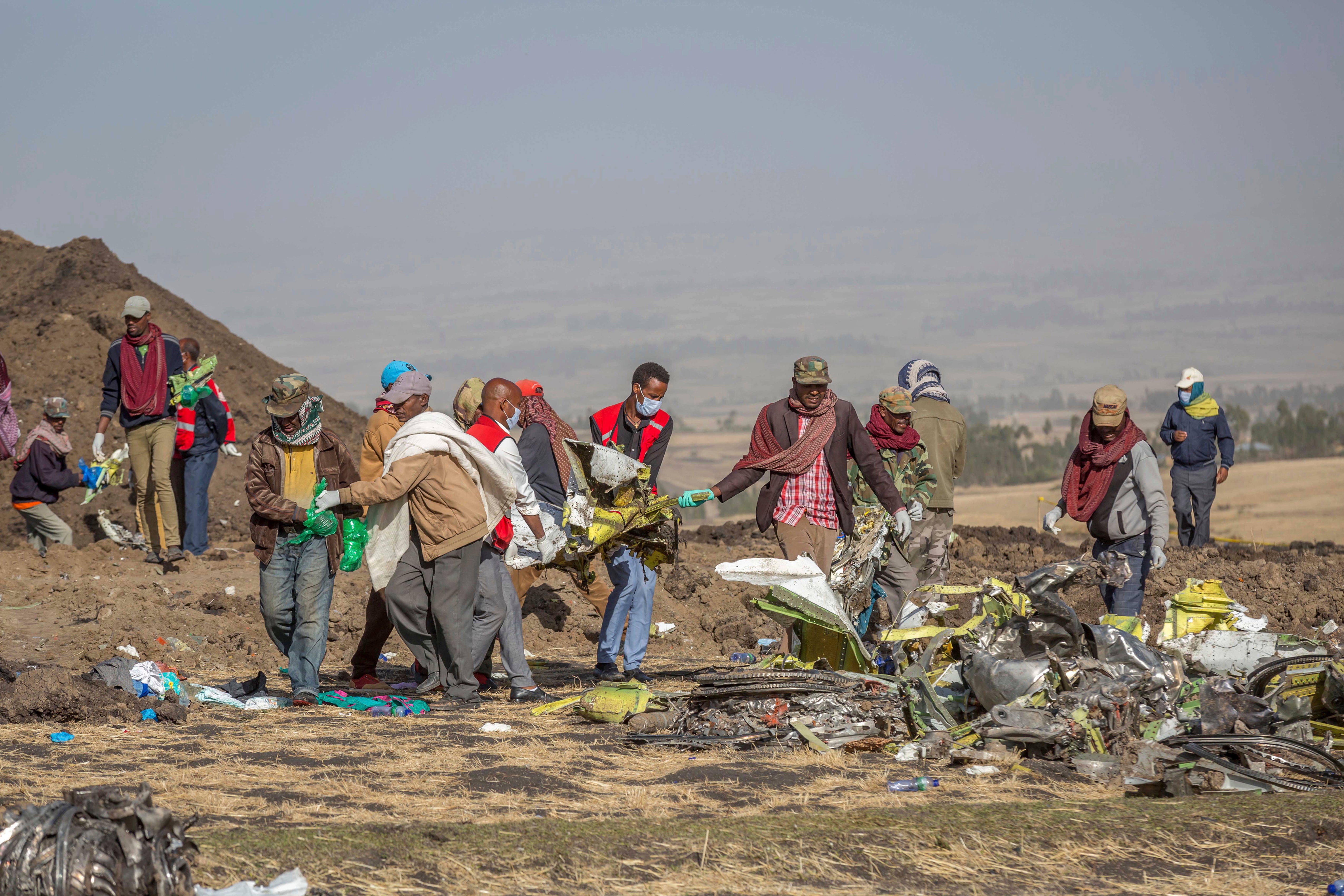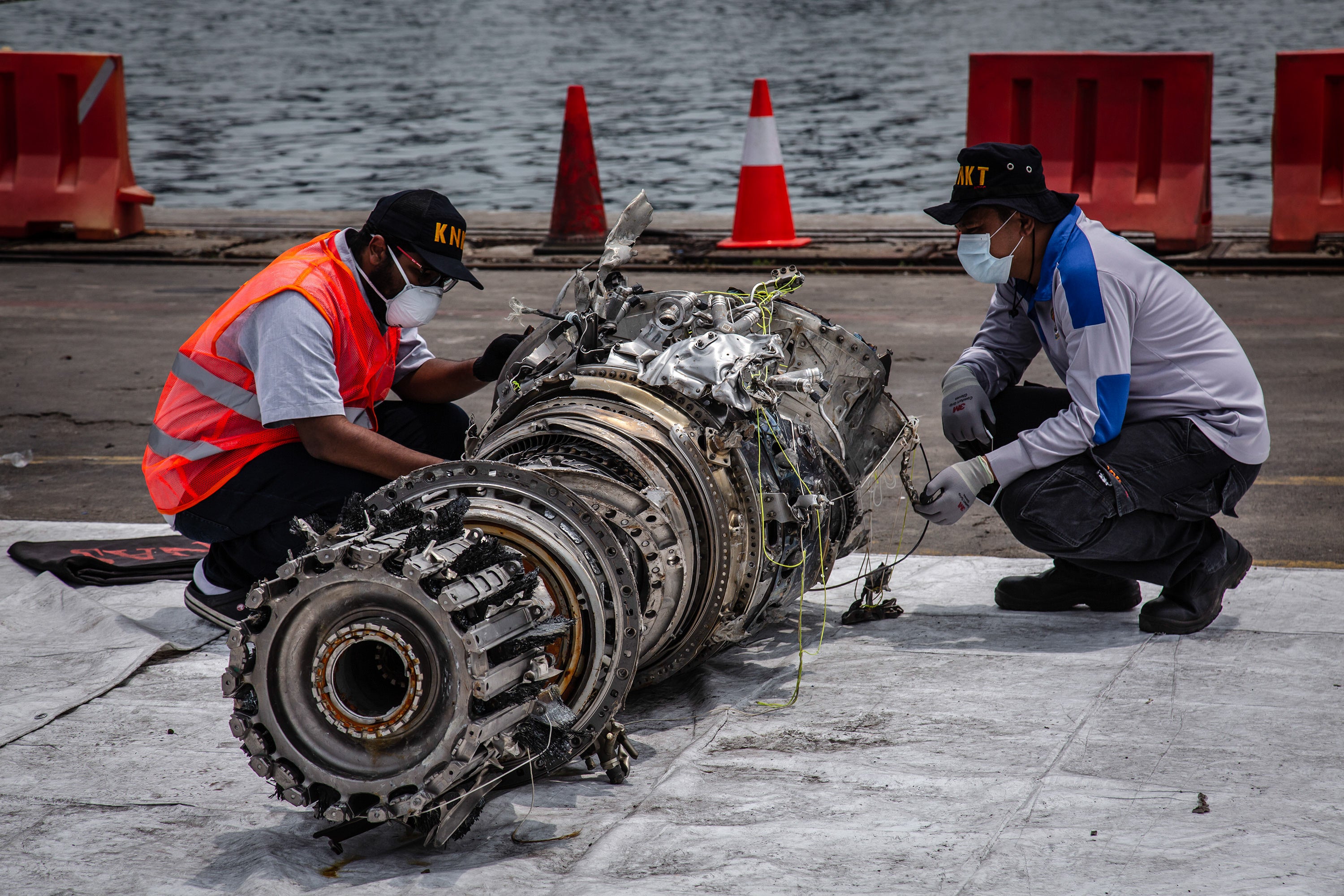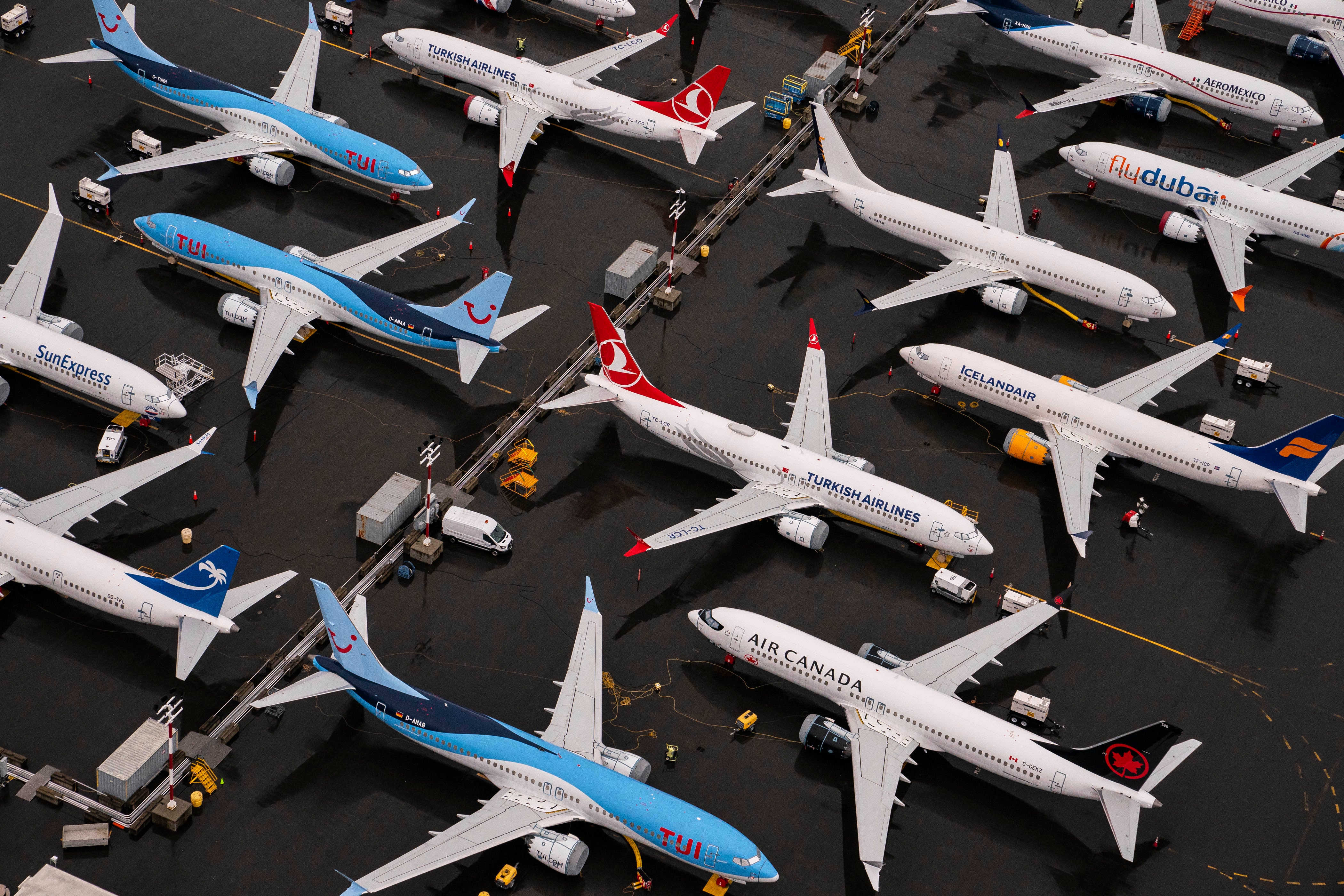Feds warn Boeing of criminal charges after airliner ‘failed ‘ to improve plane safety following 737 crashes
Families of the victims of the two deadly plane crashes are hoping that this will be a ‘positive first step’ in holding Boeing accountable
Federal officials warned Boeing about criminal charges after the airline failed to improve plane safety and adhere to a settlement after deadly 737 aircraft crashes, prosecutors said
Five years ago, Boeing agreed to pay $2.5b and make safety improvements after two new 737 Max jets crashed in separate incidents, within the space of five months, one in Indonesia in 2018 and one in Ethiopia in 2019, killing a total of 346 people.
But, now the feds claim that Boeing has violated that deal and it could face further prosecution after a string of high-profile safety incidents involving its planes, including an incident in mid-January when an Alaska Airlines Boeing 737 MAX 9’s door plug blew off, causing the grounding of all 171 MAX 9 jets by the FAA while it investigated.
“For failing to fulfill completely the terms of and obligations under the [deferred prosecution agreement], Boeing is subject to prosecution by the United States for any federal criminal violation of which the United States has knowledge,” Department of Justice lawyers wrote in a letter to a federal judge.

It is now up in the air as to whether Boeing could face prosecution, and it is unclear if the government would actually go ahead and prosecute the company.
“The Government is determining how it will proceed in this matter,” the Justice Department said in the court filing, according to The Associated Press.
Boeing will have until 13 June to respond to the government’s allegation. Upon doing so, the justice department said it would consider the company’s explanation “in determining whether to pursue prosecution.”
Boeing disputes the DOJ’s findings, claiming the company has “honored the terms of the agreement” and “look forward to the opportunity to respond to the Department on this issue.”
“As we do so, we will engage with the Department with the utmost transparency, as we have throughout the entire term of the agreement, including in response to their questions following the Alaska Airlines 1282 accident,” a spokesperson for Boeing told The Independent.

In 2018, 189 people lost their lives while on a Lion Air flight from Indonesia plunged into the Java Sea just 13 minutes after take-off. Just five months after this horrific incident, an Ethiopian Airlines took off from Addis Ababa, when six minutes in, it crashed only 30 miles from the airport, killing all 157 people on board.
When investigations into the disaster crashes were underway, authorities pointed to a flight-control system that Boeing added to the Max without telling pilots or airlines, which Boeing did not overhaul until after the second crash.
After a series of negotiations, the government agreed not to prosecute Boeing on a charge of defrauding the United States by deceiving regulators about the flight system. The settlement included a $243.6 million fine, a $500 million fund for victim compensation, and nearly $1.8 billion to those airlines whose Max jets were grounded for nearly two years.
Prosecutors said they will be meeting with families of passengers who died in both Max disasters on May 31.
Paul Cassell, a lawyer who represents families of passengers in the Ethiopia crash, said the Justice Department’s allegation that Boeing violated the settlement terms is “a positive first step, and for the families, a long time coming.”
“But we need to see further action from DOJ to hold Boeing accountable, and plan to use our meeting on May 31 to explain in more details what we believe would be a satisfactory remedy to Boeing’s ongoing criminal conduct,” Mr Cassell added to The Associated Press.

The agreement was thrust back into the spotlight after a string of safety incidents involving Boeing planes in recent months. The most notable was a door plug blew out at 16,000 feet on an Alaska Airlines flight. That led to a federal investigation into the incident and Boeing.
Former workers and whistleblowers have accused the company of systematically degrading the quality of its manufacturing and the expertise of its workforce in pursuit of short-term profits for shareholders.
Last week, a second whistleblower within Boeing’s supply chain died after alleging the company had cut corners while building its 737 Max jetliner. Reports indicated the man had died of pneumonia caused by a flu infection.
In an email to employees last month, Scott Stocker, the head of Boeing’s 787 program, blamed the missed inspections on “misconduct” by workers and said that those responsible had received “swift and serious corrective action.”

